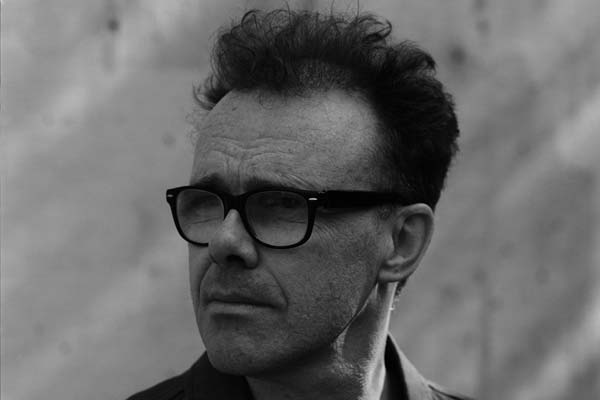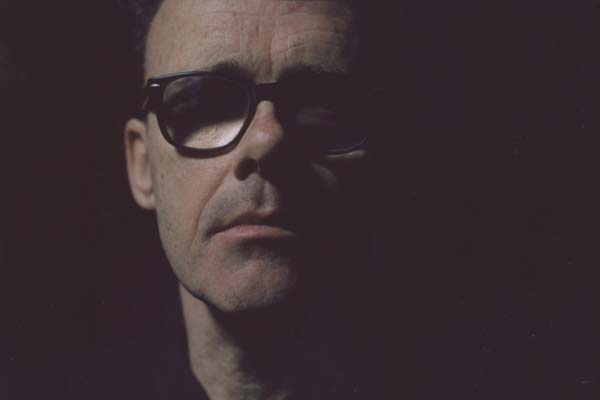Sixteen years after their last release, British electronica titans Leftfield are back and the story isn’t over yet.
Once upon a time, a long time ago, in a land far away, back when undercuts were worn unironically and people could say things like “New 'Friends' episode tonight!”, two British men were about to play a pivotal part in the legitimisation of dance music.
Sounds weird now, legitimising dance music as though it’s some sort of fad. However, back in 1995 people were still genuinely questioning if this boom boom boom was just a passing trend, skeptical of its musical merit. Leftfield’s debut album, ‘Leftism’, was a critically worshiped cornerstone that made it clear that dance music was here to stay. Their classification blurring epics fit just as comfortably at 2am in a sweaty club as on the ludicrously expensive sound system of a polo neck wearing music snob to stroke their goatee to. They were part of a revolution in dance music, creating something new and significant amid a grunge hangover and Brit-pop obsession for who history hasn’t been so kind.

Pretty much everywhere other than the dance-shunning US, Neil Barnes and Paul Daley were untouchable. They gained a reputation for being one of the loudest live acts ever. So loud was their sound system, that after playing London’s Brixton Academy, it was banned from ever being used there again having literally shaken the very foundations of the venue causing plaster to drop from the walls and ceiling. Their breakthrough track ‘Open Up’ featured John Lyddon of the Sex Pistols with an impassioned performance alongside a Mercury Music Prize nomination. The anticipation for their follow-up was massive.
It took four years for the follow-up, ‘Rhythm & Stealth’, to be released in 1999. In that time, dance music had evolved at an explosive rate into an ever-growing range of subgenres. Then, after the incredible lead track ‘Phat Planet’ pushed expectations to fever point, the album arrived to relatively muted reviews. Rather than revolutionising, it instead expanded on the ideas initiated on their debut. ‘Phat Planet’ was an obvious hit, its confident tribal simplicity demanding attention, while guest spots from Afrika Bambaataa and Roots Manuva created highlights in ‘Afrika Shox’ and ‘Dusted’ respectively. However, despite still being a strong album that has stood the test of time, it could never meet the scales of expectation it had been saddled with. The album managed to reach #4 in the Australian album charts, but just three years later in 2002, the pair decided to go their separate ways.
Fast forward to 2010 and the surprise announcement of the reformation of the band though with the notable absence of Paul Daley. After resoundingly positive reactions to their early live shows, Neil announced a new Leftfield album was on its way. “I felt like I wanted to push the Leftfield catalogue in a different direction and make it really modern, rather than a memory of those two albums. I didn’t feel like the story was over.”
On why this was a Leftfield release despite missing half the line-up Neil says: “The name brings a weight behind it that allows me to get into the personality of the music. The power of it is Leftfield and the emotion of it is Leftfield, and that’s me, that’s very much my thing.”
Keeping in tradition with the last two albums, the record features a respectable guest-list that includes Sleaford Mods who also guested on fellow '90s dance veterans The Prodigy’s latest album.“Jason’s [Williamson, SM vocalist] got the same stupid sense of humour as me. I didn’t know that Jason was about to start something for The Prodigy. There was no connection, and it didn’t stop me from wanting to do this track.”
Since ‘Rhythm & Stealth’, dance music has changed immeasurably, to the extent that referring to it as 'dance music' makes you sound out of touch. As EDM finally broke dance through the American mainstream, I asked Neil how Leftfield fit into this drop-obsessed landscape. “That’s a tricky one. Most acts doing that sort of music look bored doing it. Taking that approach to being successful is just being cynical and manipulating people, I hate it. I’m happy just to make some music and I hope people like it and that they realise that I’m trying to do something different.”
The album is an impressive reinterpretation of ‘90s techno through a modern filter that recalls modern innovators like Modeselektor. Though still identifiable as Leftfield, it’s unquestionably forward looking with lead track ‘Universal Everything’s seven minutes making clear this reunion is no cynical cash-in. “Modeselektor lead the way in big-band electronic music. Also in England we’ve got Hudson Mohawke and Jamie XX, they’re forging a new style of music that is really fresh and brave.” Add Leftfield to that list.
So if you've had never heard of Leftfield before, how would you convince someone to give you a listen? “Do not listen to Leftfield. Stay in the area that feels safe for you and that you’re comfortable with. You don’t want to get corrupted by all this music.” A bold attempt at reverse psychology, but not one I can even pretend to agree with. The new Leftfield album is a breath of fresh air, one of looking to the future rather than dwelling on nostalgia. Though the hysteria may be behind them, the reduced expectations have relieved the pressure and allowed Neil to concentrate on doing what he does best. Not changing the world, but making it a better place to be.
‘Alternative Light Source’ is out 5 June.

